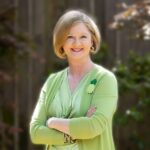Before deciding to return to school and become a Certified Gerontologist, not only could I not describe what a gerontologist did, I am not sure I could even have spelled it correctly. Sadly for all of us, I now explain what it means many times a day.
I say sadly, because the lack of knowledge about this field reflects not ignorance on the part of the asker, but the failure of the world/media to allot much time or space to talking about humans getting older—something we all do, unless our time is up and we join the spirit realm.
What baffles me even more comes from the U.S. Census Bureau stating that by 2020, approximately 71.1 million people over 55 in the US can expect to live to 77 years old if you are a man, and 82 years old if you are a woman. That’s a lot of folks who, until the last few years, have been virtually ignored.
Well, the good news is research began in earnest about 20 years ago, and that data, along with an explosion of new studies, are suggesting ways to help us age more vibrantly.
The Multifaceted Discipline of Gerontology
Uniquely poised to understand and interpret this cavalcade of data are gerontologists, because gerontology is the only field which looks at and combines:
-
- The study of the body (biology)
-
- The mechanical, physical, and biochemical functions and processes of the body (physiology)
-
- The study of behavior and emotions (psychology)
-
- The human social relationships (sociology)
-
- The spiritual beliefs many of us embrace—the way of our hearts (without getting specific about religion and its related dogma.)
But there is more.
The Humanistic Approach in Gerontology
The important research from the biological, physiological, social, and psychological sciences provides us valuable insights about old age, but the sciences are driven by the humanistic studies in aging—the greater imagination, hopes, fears, and experiences of people.
To quote three much respected gerontologists, Dr. Thomas R. Cole, Dr. Ruth E. Ray, and Dr. Robert Kastenbaum “[The added element of] humanistic studies in aging… enlighten and inform traditional scientific perspectives.”
Gerontology blends all these elements together like the flour, eggs, yeast and water used to make a wonderful loaf of bread, and gerontologists are the bakers, kneading and baking the dough, giving rise to something new, whole and complete from these individual ingredients.
Gerontology vs. Geriatrics: Understanding the Difference
So then what is geriatrics and who are geriatricians? The University of North Carolina at Chapel Hill’s School of Medicine defines these terms as follows:
“Geriatric Medicine is a specialty that focuses on medical issues and diseases of aging, and of old age. A Geriatrician most often treats people over the age of 60 who are either healthy or have multiple medical issues.
Medical care becomes more complex as you age and encounter more medical conditions. A Geriatrician is an expert in how medical conditions impact one another, in how each medication interacts with others and how both medical conditions and medications uniquely affect you as you age.”
Source: (https://www.med.unc.edu/aging/patients/what-is-geriatric-medicine)
Clearly, there is a need for both specialties, gerontology and geriatrics, since we each focus on different aspects of the aging process.
Embracing Vibrant Aging™
However, it is my sincere desire that by offering sound science on how to age vibrantly, you, dear reader, will spend more time zipping around on your moped, dancing to the music of The Platters, and loving life and your partner, than warming a seat in a geriatrician’s office!
I hope this gives you a better understanding of what gerontology is, and what we gerons are trying to do. If not, please send questions! I love providing answers 😉
You may also want to read this article with an overview of how a gerontologist can help.
Until next time…… Be Vibrant!

L.J. Rohan is a Gerontologist (University of Southern California’s Davis School of Gerontology), Certified Aging in Place Specialist (CAPS), and Vibrant Aging™ Coach. L.J. is dedicated to redefining the aging process. With a focus on holistic well-being, she combines scientific research and practical insights to guide women age 55+ towards a vibrant, fulfilling life. Her work has been featured in numerous publications and she frequently speaks at institutions such as Yale University and Southern Methodis University. Be Vibrant!

